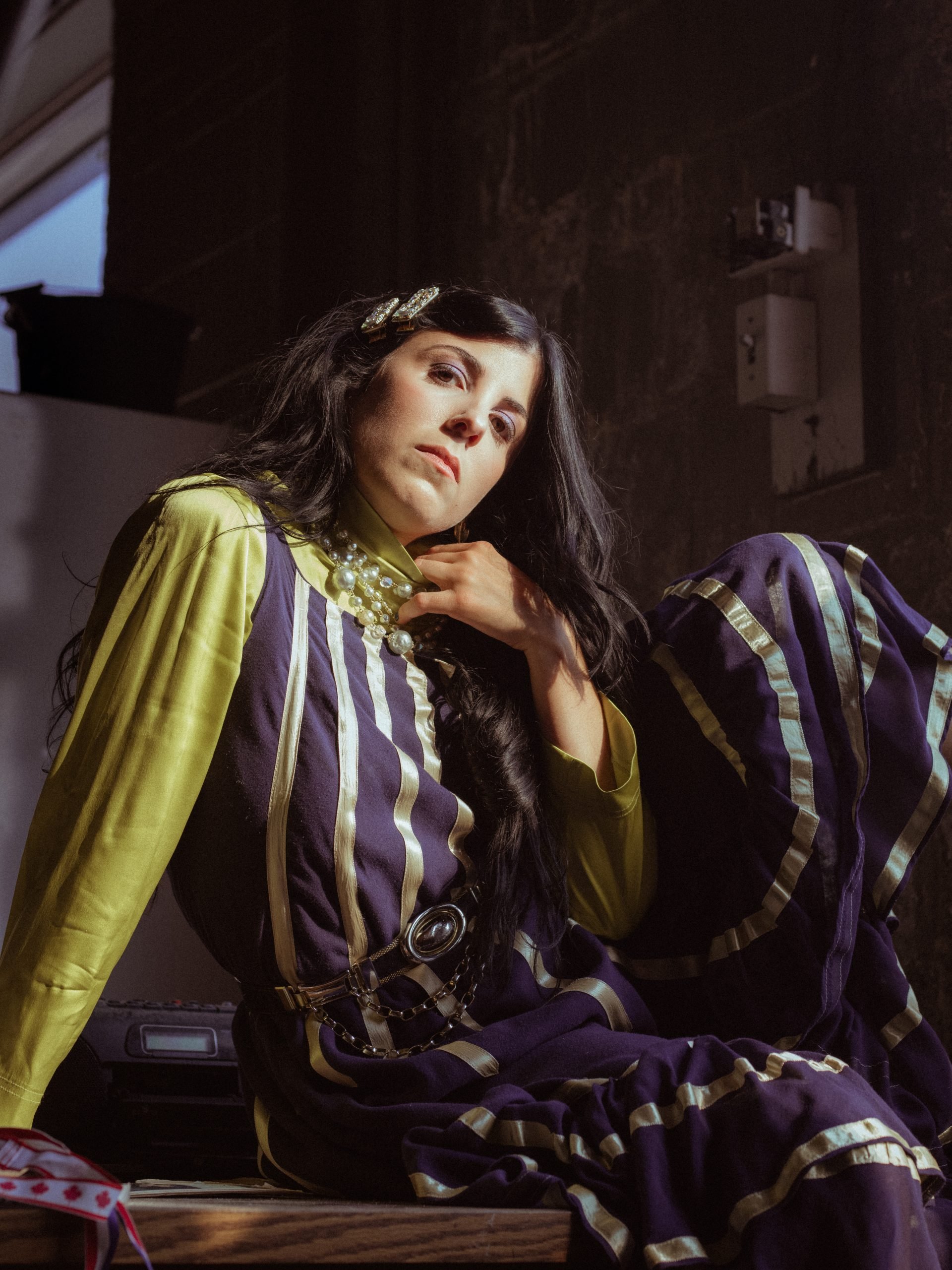Ada Lea's "one hand on the steering wheel the other sewing a garden" Chronicles Montreal with Folk-Pop Ballads (Saddle Creek)
Standing on Parc and Bernard, wondering whether you should move back home for a while, Ada Lea's one hand on the steering wheel the other sewing a garden becomes the perfect soundtrack for your trying-to-make-it-work-in-Montreal life crisis. The introspective folk/pop songs walk with you through the process of finding your identity and losing it again to someone who's not worth it, daydreaming about life in other cities, and wondering when to go home again.
Inspired by personal experience, daydreams, and Elena Ferrante's Neapolitan novels, Ada Lea's lyrics center storytelling on a bigger scale. The experience and emotions of a year are communicated through Levy's vignettes of city life. Her prose wanders through St. Denis in Montreal, conjuring memories from local haunts like Fameux, La Rockette, and Quai des Brumes in rearview reverie.
We spoke with Ada Lea about her new album, favourite memories, and of course, Montreal.
Ada Lea by Kristina Pedersen
Malaika Astorga for Also Cool: Your songs chronicle your life in Montreal and the city itself. How has your relationship with the city changed over the years? Can you tell us about a favourite memory or two?
Ada Lea: It's definitely sad to see many of the spots shut down over the years, and hideous buildings take their place, rent increasing, friends moving out of Montreal. Having lived some time in the States, I've come to appreciate the higher standard of living, accessibility to medical services, and overall feasibility of Montreal.
It's hard to name a favourite memory, but the ice storm of '98 was quite memorable. I was pretty young, and the images of that time are fragmented and magical.
Also Cool: How have you felt the music/art scene in Montreal shift over the years? What has your experience navigating the scene been like?
AD: Either the DIY scene has dissolved, or I am just not aware of what the scene looks like now - I'm not totally sure - all I know is that all the venues that were important to us back in the day have shut down, and I haven't heard of anything new popping up to replace them. Those spots were instrumental to my musical development and the growth of my peers and bands newly forming around that time. It felt like a really strong community of musicians that had the time and space to explore new sounds and the ability to afford these experiences.
AC: Your lyrics tell the stories of your memories, but almost like you're reminding yourself of what happened so that you don't forget. How has your relationship changed with the art of storytelling?
I know you were inspired by Elena Ferrante's Neapolitan novels, and I'm wondering how that impacted your writing.
AD: It feels like I have a better sense of what I'm after, what matters in a story, or maybe I'm quicker at identifying when I'm not touching on anything. There's also less of a desire to be awkwardly "poetic." When I was just starting out, I felt like I needed to embellish everything, to make it more abstract, or how I thought things ought to be said in a poem. These days I feel more confident in reaching for the concrete, adopting a conversational tone, or being open to the change of direction in a story. There is a whole range of different song types, too, and I'm just starting to explore which ones interest me most.
I wrote the album as I was finishing the Neapolitan Quartet. I think her writing is something that I'll never grow tired of investigating. I became inspired by her character development, which will likely be explored in my third album, more so than this second one.
“Hurt” Artwork by Monse Muro
AC: In your songs, you go through many cycles of change, acceptance, and release. What have you learned about this perpetual cycle of release in relationship with your own personal growth?
AD: Acceptance is everything! I feel most resistant to change when I'm not willing to accept it. Only in the past few months have I applied this to my own life, but what a difference it has made.
AC: What would your advice be to someone who had just moved to Montreal?
AD: Work at a cafe. Start a punk band. Be in an open relationship.
Listen to one hand on the steering wheel the other sewing a garden below
Ada Lea
Instagram I Twitter I Facebook I Website
Malaika Astorga is the co-founder of Also Cool. She is a Mexican-Canadian visual artist, writer, and social media strategist currently based in Montreal.
























